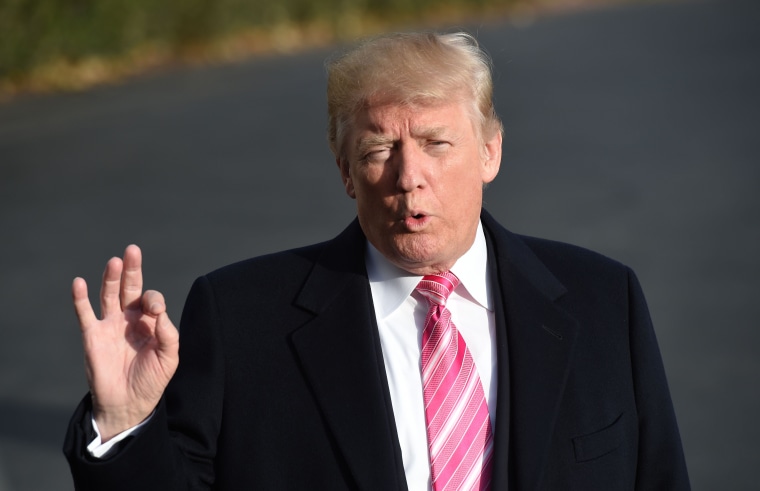For months, the nation has faced the very real possibility that Donald Trump obstructed justice in the federal investigation into the Russia scandal. Indeed, Special Counsel Robert Mueller already appears to be examining allegations that the president allegedly pressured the director of the FBI in the matter, and then fired him in order to help derail the probe.
But as Rachel explained on last night's show, those allegations grew louder with this New York Times report.
President Trump over the summer repeatedly urged senior Senate Republicans, including the chairman of the Senate Intelligence Committee, to end the panel's investigation into Russia's interference in the 2016 election, according to a half dozen lawmakers and aides. Mr. Trump's requests were a highly unusual intervention from a president into a legislative inquiry involving his family and close aides.Senator Richard Burr of North Carolina, the intelligence committee chairman, said in an interview this week that Mr. Trump told him that he was eager to see an investigation that has overshadowed much of the first year of his presidency come to an end. [...]In addition, according to lawmakers and aides, Mr. Trump told Senator Mitch McConnell of Kentucky, the Republican leader, and Senator Roy Blunt, Republican of Missouri and a member of the intelligence committee, to end the investigation swiftly.
The Times' report added that the president "called other lawmakers over the summer," urging them to pressure Burr to end the Intelligence Committee's investigation. One unnamed senator was reportedly "alarmed" by Trump's direct lobbying.
In case this isn't already painfully obvious, when Congress is investigating a scandal involving the president, the president isn't supposed to call lawmakers to pressure them to stop.
Indeed, Rachel spoke last night to Joyce Vance, a former U.S. Attorney, who acknowledged on the air that Trump's intervention was "potentially obstruction of justice."
The former federal prosecutor added that if the president claimed ignorance, and said he didn't realize it was a problem to lean on Congress to end an investigation into his political operation, the defense would be "a very weak one." Vance went on to say that this sort of argument is "tried a lot and it fails a lot."
For its part, a White House spokesperson issued a statement last night, which said, "The White House has been cooperative with the Senate Intelligence Committee's inquiry and the President at no point has attempted to apply undue influence on committee members. He has reiterated what he has long said publicly: there is no evidence of collusion and these investigations must come to a fair and appropriate completion."
There are a couple of things that stood out in those two sentences. The first is the use of the word "undue," which suggests the White House realizes the president did try to intervene in Congress' investigation, but Trump World doesn't think that should be seen as problematic.
The second is that the president's team apparently likes to pretend there's "no evidence of collusion," which is true just so long as we overlook all the evidence of collusion.
Postscript: Let's also not forget that House Intelligence Committee Ranking Member Adam Schiff (D-Calif.) told reporters after a hearing with Attorney General Jeff Sessions that he asked Sessions whether Trump had ever instructed him to take action that he believed would hinder the Russia investigation.
Sessions apparently refused to answer the question.
